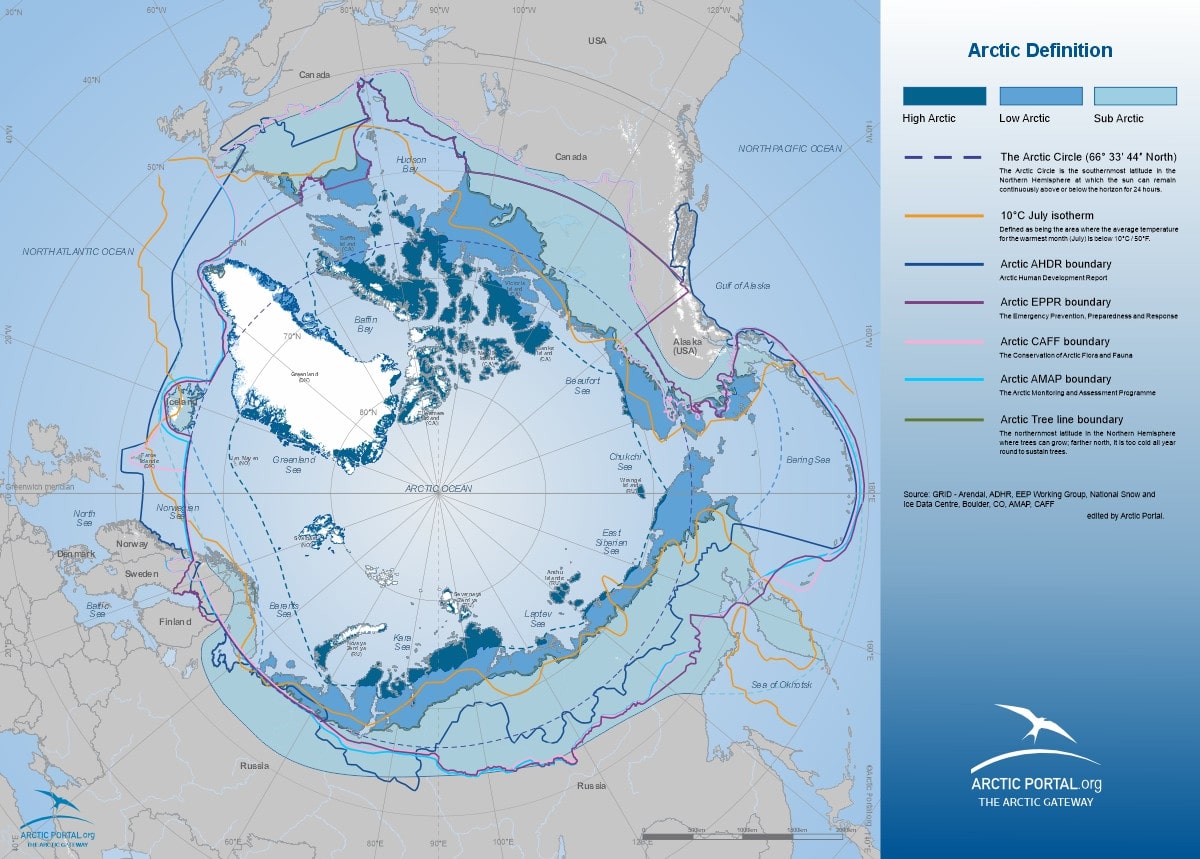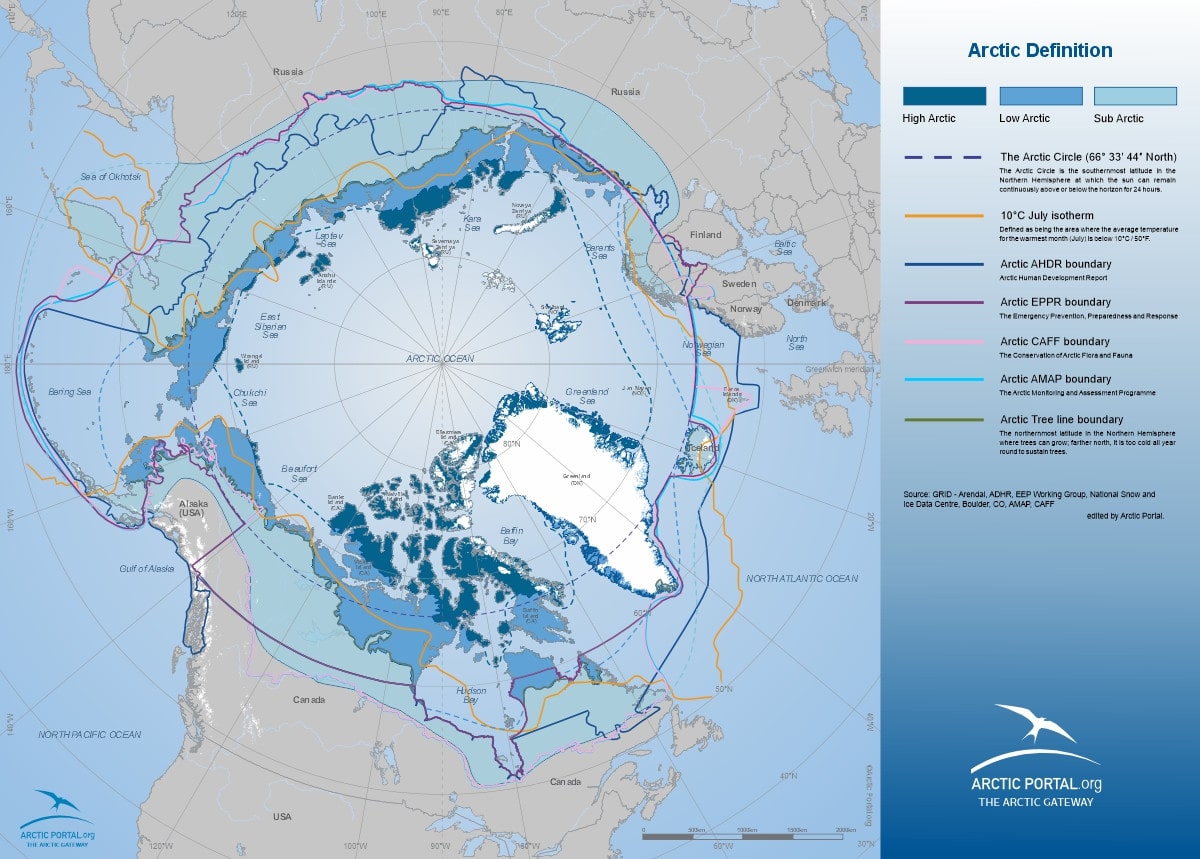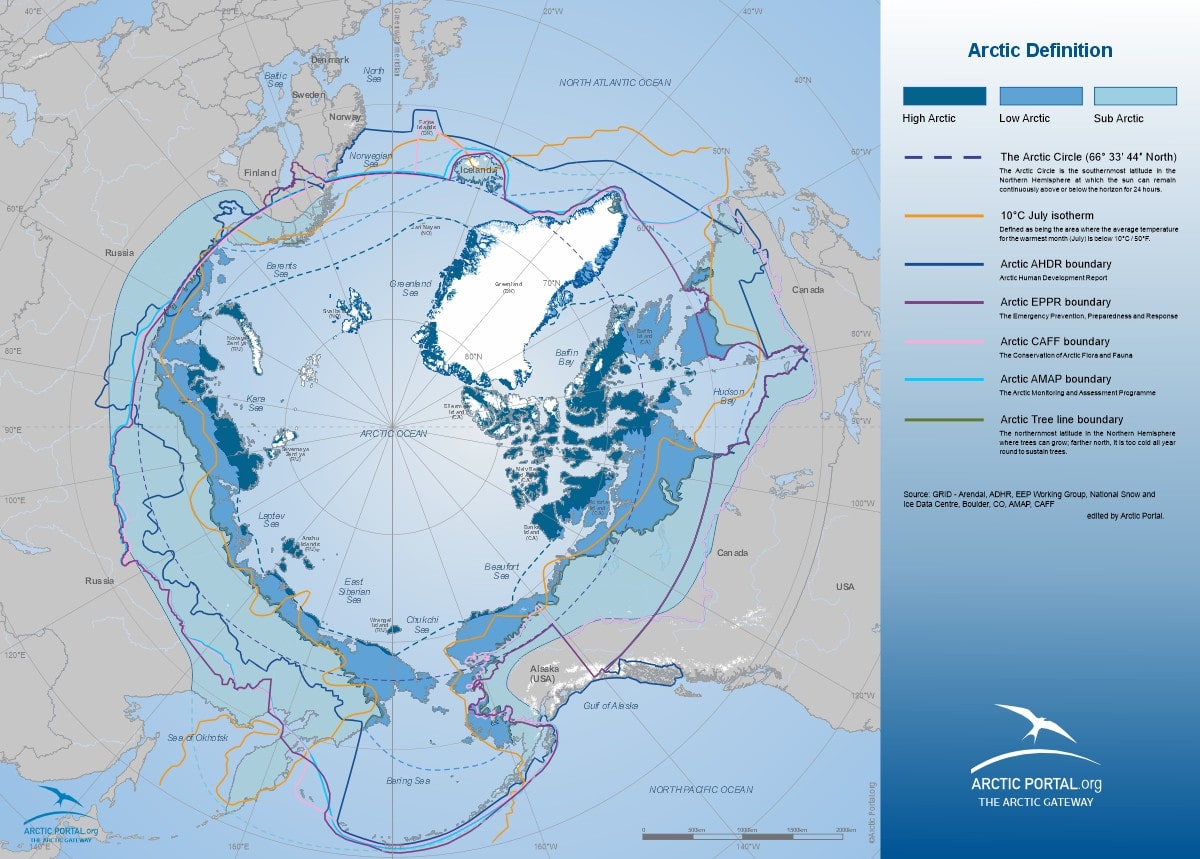Arctic Definitions
Under this section, a selection of maps representing the main definitions of “Arctic” is presented.
Maps can be combined among them or with maps presented under other sections (as for instance Arctic Summer Sea Ice extent and “Arctic definitions”). All maps can be purchased and downloaded in high resolution. Maps can be snipped or copied for use in presentations as long as its origin is clearly accounted for.
For further information, such as inquiries on maps with even higher resolutions or with different dataset combinations, please contact info at arcticportal.org.

This map shows the main definitions combined currently in use to describe the Arctic in North Polar Russia projection.
© Arctic Portal 2006-2026
Last updated: February 2025

This map shows the main definitions combined currently in use to describe the Arctic in North Polar Canada projection.
© Arctic Portal 2006-2026
Last updated: February 2025

This map shows the main definitions combined currently in use to describe the Arctic in North Polar Bering projection.
© Arctic Portal 2006-2026
Last updated: February 2025

This map shows the main definitions combined currently in use to describe the Arctic in North Polar Europe projection.
© Arctic Portal 2006-2026
Last updated: February 2025

The northernmost latitude in the Northern Hemisphere where trees can grow
© Arctic Portal 2006-2026
Last updated: April 2016

The Arctic area under the definition of the Arctic Monitoring and Assessment Program
© Arctic Portal 2006-2026
Last updated: April 2016

The Arctic area under the definition of the Conservation of Arctic Flora and Fauna working group
© Arctic Portal 2006-2026
Last updated: April 2016



